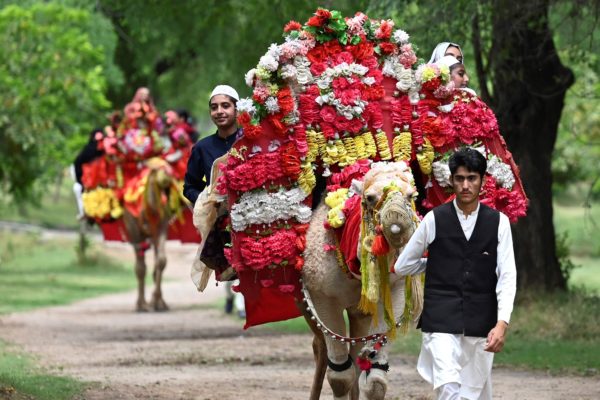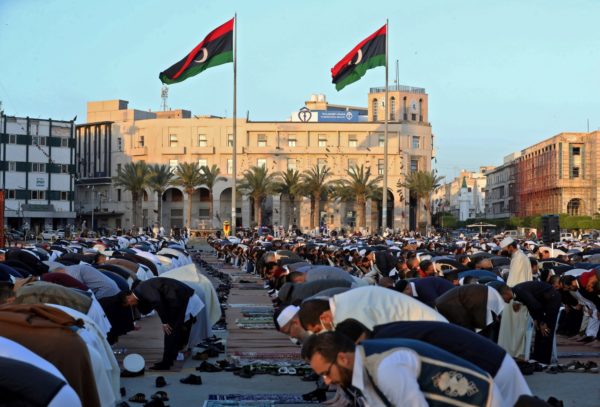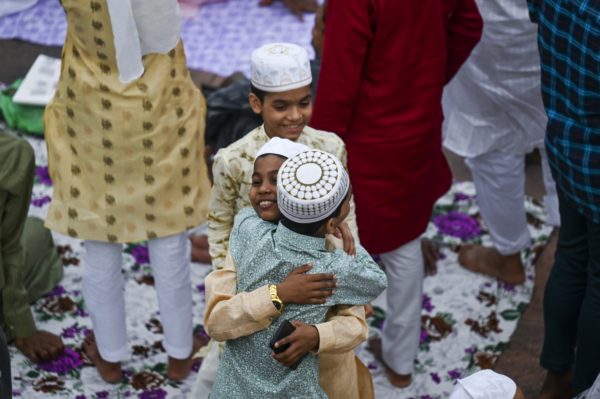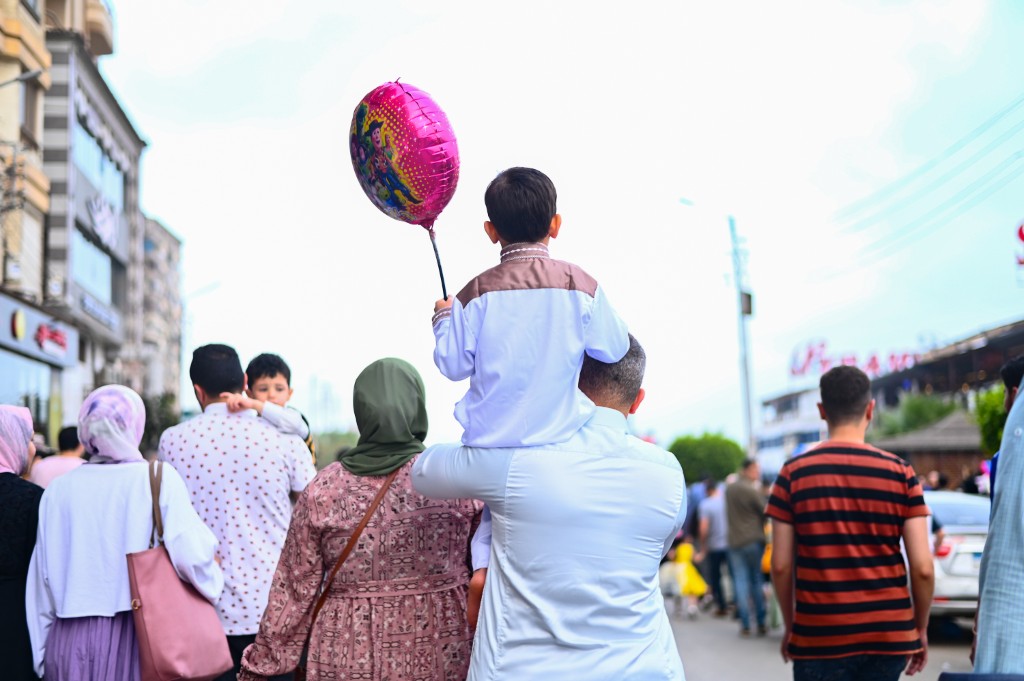São Paulo – Companies close for recess, families gather, prayers, and celebrations all over. It’s a day to go to the mosque to pray and meet acquaintances at home or in public spaces. That is Eid al-Fitr in Muslim countries. It’s a holiday, a festival, the end of Ramadan, and one of the most important dates in the Islamic calendar. See below pictures of last year’s Eid al-Fitr celebrations in different countries. Above, an Egyptian family strolls.

Eid al-Fitr is a three-day holiday in nations with Muslim populations. It takes place on different dates each year, just like Ramadan, the holy month of Islam in which believers fast from sunrise to sunset. The date is not very specific, as the lunar calendar governs it. This year, Eid al-Fitr will occur this Friday (21), ending Ramadan, which began on March 23. Each Ramadan can last for 29 or 30 days.
“Eid al-Fitr is the moment to end this 29 or 30-day journey. You feel the Highest Creator is pleased with you. He’s satisfied because you’ve improved in all aspects, so it’s a big celebration,” explained the vice-president of the Federation of Muslim Associations of Brazil (FAMBRAS), Ali Zoghbi, to ANBA.
In Ramadan, in addition to fasting from eating and drinking daily, Muslims must increase charity and prayers and follow other practices and restrictions in connection with Allah, as they call God. During this period, mosques are also full, and fasting is usually broken collectively with family or friends and partners in faith. “There is an assumption you come out a better human being,” says Zoghbi.

One of the bases of fasting during Ramadan is showing solidarity with those who are hungry. But Zoghbi explained fasting is not only about food but also spirituality, about dealing with human beings with more affection and respect, letting go of offenses, and seeking reconciliation with people. “It is a time of conciliation, spiritual purification, charity, devotion, and a crucial exercise of self-control,” he said.
After all this experience, Eid al-Fitr is the time to leave food and drink fasting behind and celebrate the achievements of the holy period. The festival’s day – also called Eid al-Fitr – begins with a prayer dedicated to the date in the mosque, where special religious chants are sung. The prayer is joint and complemented by fraternization or even a collective breakfast in the place of worship.

Then comes a fraternization ritual among friends, families, and acquaintances. People visit each other and go from house to house for coffee, meals, and sweets. Families are already prepared to receive others. Zoghbi says they wish each other happiness on the magnificent Eid al-Fitr day during these visits. During the following days of the festival, this great fraternization continues to take place in the countries.
“It is a period of great joy for the Muslim community, where everyone is together fraternizing and, I would say, celebrating the end of the individual and collective improvement process as well,” he said. Wearing the best clothes you have is part of the ritual of the particular date, just as among some groups of Muslims, there is a habit of exchanging gifts, donating toys, or giving souvenirs to the children.
Adaptation to the period
Eid al-Fitr is a religious holiday, like Christmas in Brazil and other countries with predominantly Christian populations. Activities in Islamic nations during this period are similar to those in the West during Christmas, with only essential services, restaurants, hotels, and leisure facilities open to the public. Therefore, those who have business with Muslims need to take these peculiarities into account, just as it is necessary to observe the change in routine during Ramadan.

Brazil is an essential food supplier to Muslim countries; exports to these markets increase in the month before Ramadan when local stocks are replenished. Despite fasting, collective evening meals in countries increase consumption. However, during the holy month, activities are reduced, and special hours are adopted due to fasting. Some nations lessen the workload, closing everything earlier; the shift starts after breakfast in others.
“It is essential to respect these times in these countries and, above all, respect this moment and this difference. You may not be a Muslim, but you have to consider that person is at a critical moment for them and, at the same time, weakened due to [the lack] the fast,” said Zoghbi. He recalls Ramadan occurs in different seasons in each region. “Some countries are in summer, and the daytime is longer,” he said.
During Ramadan, work is not interrupted in Muslim countries but undergoes adaptations. For those who need to have work meetings or negotiate with those who are fasting, it is recommended to book early. Zoghbi suggests avoiding gatherings close to breaking the fast or prayers; the latter performed year-round. For financial transactions, you also need to consider the opening hours of banks during Ramadan. On the Eid al-Fitr holiday, companies, in general, are closed.
Muslims around the world

Each country has its practices. Eid al-Fitr, however, is usually observed in countries that are officially Muslim and in others that are not but have large populations that follow the religion. Indonesia, for example, is not an Islamic state but has 250 million Muslims among its over 270 million inhabitants. “It’s a holiday,” explained Zoghbi about the date in the country. Turkey is also an officially secular country with a Muslim majority, so Eid al-Fitr is an important national celebration.
Is visiting a Muslim country for tourism during Eid al-Fitr a good idea? “It would be very well-received; it’s a party, a delight,” said Zoghbi. But as a religious holiday, it will also be a time of halt for residents, so not all stores will be operating, except those preparing to receive customers due to the festive moment. If you are in an Arab country on Eid al-Fitr, say: “Kol Aam Ua Antom Bikhair.” It means “May you be in peace and well every year” and fulfills the date.
Translated by Elúsio Brasileiro




